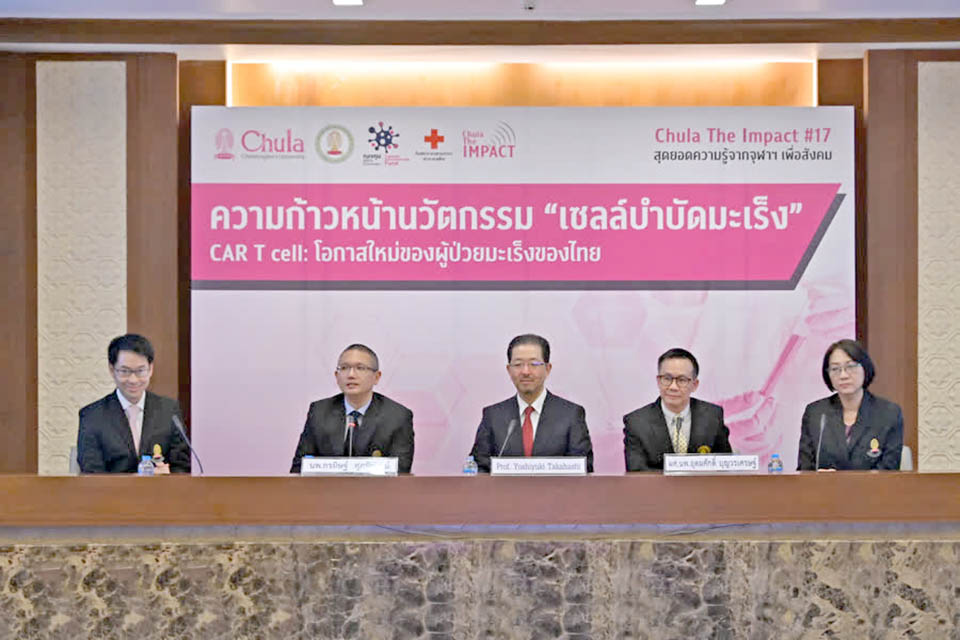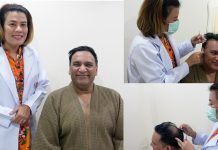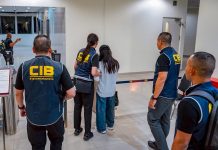
Thailand’s Chulalongkorn University and Japan’s Nagoya University are collaborating on the development of a form of immunotherapy designed to cure cancer.
In a recent conference entitled “CAR T-Cell Cancer Therapy Innovation: New Hope for Thai Cancer Patients,” the teams reported on the progress of CAR T-cell immunotherapy. The treatment can increase survival rates and reduce the chance of cancer returning in leukemia and B-cell lymphoma patients.
CAR T-cell (Chimeric Antigen Receptor T-cell) therapy is a type of immunotherapy used to treat cancer. It involves genetically modifying a patient’s T-cells, which are a form of immune response, to specifically target cancer cells.
CAR T-cell cancer therapy is considered an efficient method of treating cancer via. The technology requires the production of CAR T-cells in a specialized sterile laboratory by genetically modifying a patient’s T cells and multiplying them outside the body until a sufficient number is achieved.
Infusing these cells back into the patient’s body can kill remaining cancer cells, especially in the circulatory system, where the innovation controls cancer in 50 to 80% of patients who were previously unresponsive to other forms of treatment.
The cost of CAR T-cell therapy is as high as 15 million baht per treatment, mainly due to genetic engineering using expensive viral vectors. To address this challenge, the teams began a project with researchers from Nagoya University seeking to develop more affordable non-viral genetic engineering technology in order to produce CAR T-cells.
The team succeeded in refining and testing the production process of non-viral CAR T-cells using the blood of Thai volunteers and found the cost of production to be 10 times lower than that of commercial CAR T-cell products. This has led to collaborative clinical research on using non-viral CAR T-cells to treat lymphoma patients in Thailand, offering new hope for cancer patients in the region. (NNT)





